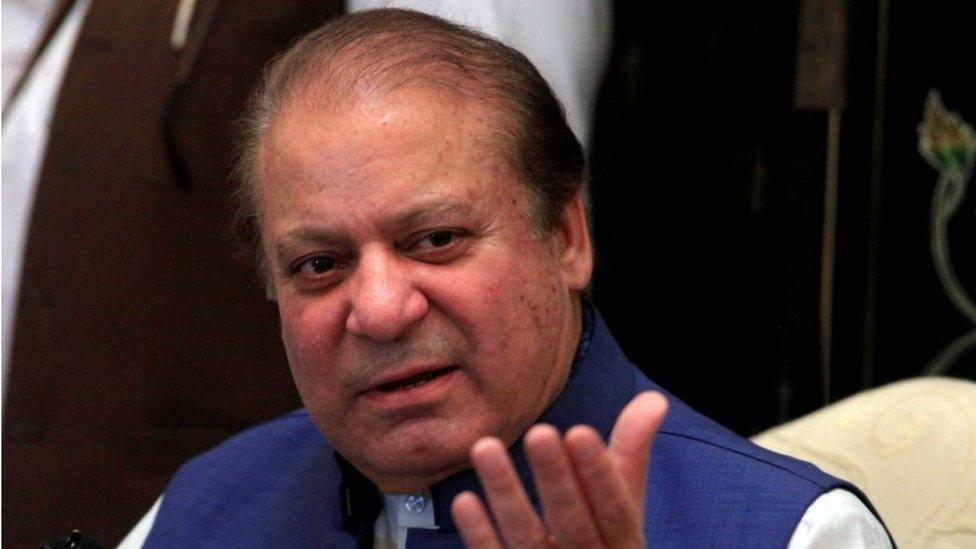Pakistan election: Imran Khan scents victory
- Published
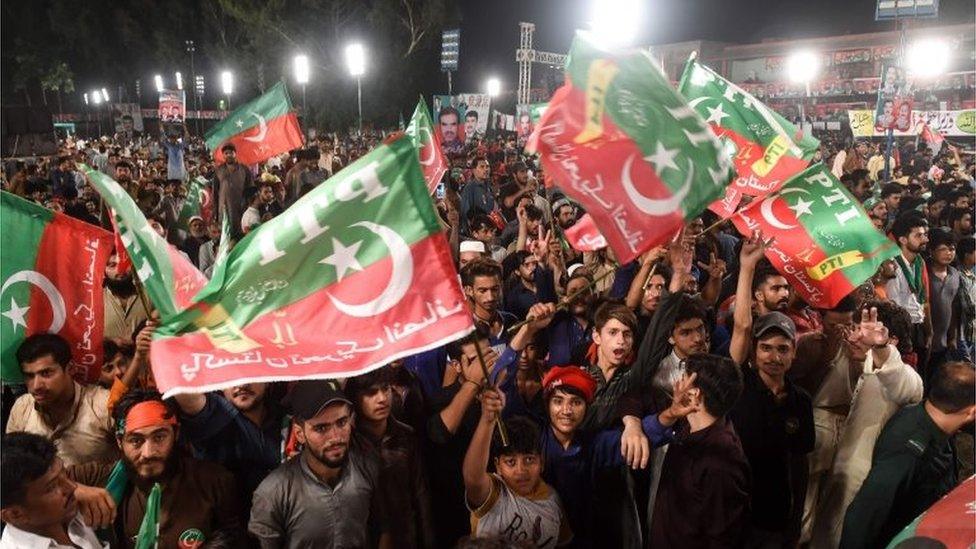
Imran Khan's supporters have never been nearer to victory, opinion polls suggest
Leading Pakistani opposition politician Imran Khan has told the BBC his opponents in elections next week will "lose because of their track record" when in power.
Mr Khan dismissed concerns about the fairness of the elections.
"The status quo parties are suddenly saying the elections won't be free and fair. The reason is all the opinion polls show the PTI is surging… so they're already seeing the writing on the wall."
Supporters of the PML-N party, in power for the past five years, and human rights groups allege the Pakistani military is "engineering" the result to ensure Mr Khan's PTI party wins.
The elections are widely seen as a contest between the PTI, and the PML-N, dominated by the family of former Prime Minister Nawaz Sharif.
Mr Khan told the BBC his party's campaign was "a mission to see Pakistan rise again".
The former cricketer has made fighting corruption his main policy issue. His rival, Mr Sharif, was sentenced to 10 years in jail by an anti-corruption court earlier this month, the culmination of an investigation Mr Khan pressed for.
Mr Khan told the BBC he believed the trial had raised awareness of the knock-on effects of corruption. "That's how a country doesn't have the money for its expenditure, it doesn't have money for human development."
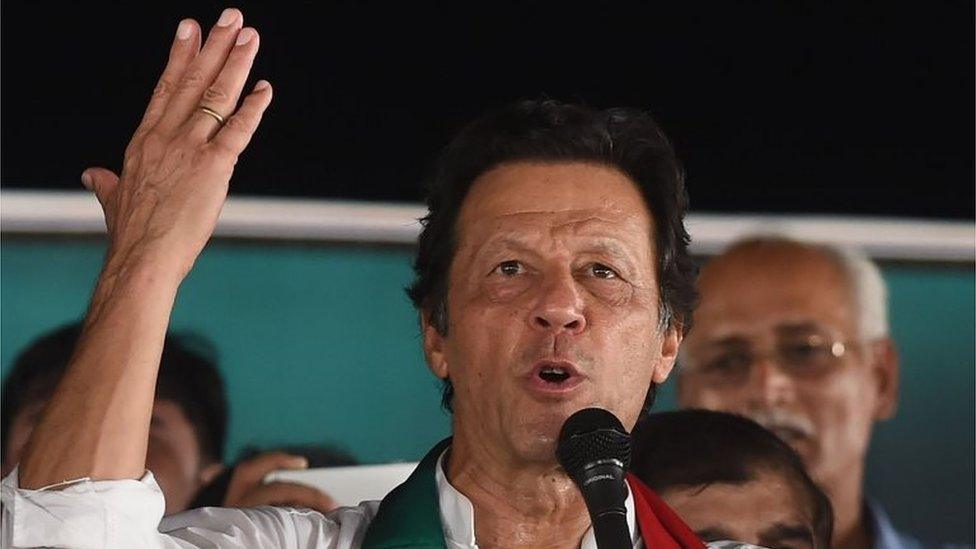
Mr Khan is seen by many voters as a "change" candidate
However, some analysts say that the real reason for Mr Sharif's conviction is that he clashed with the Pakistani army over foreign and security policies while in power.
Mr Sharif claims the military, which has directly controlled Pakistan for nearly half its existence, is now engaged in "pre-poll rigging" in order to prevent his party being re-elected.
A number of PML-N candidates have alleged they were told by the intelligence services to defect from the party, and journalists say they have been given instructions not to report stories sympathetic to Mr Sharif.
The Pakistani military denies interfering in politics.
At a rally in Lahore, supporters of Imran Khan said they believed Mr Sharif's claims were an attempt to distract attention from the corruption allegations.
Mr Khan is seen by many voters as a "change" candidate. Unlike his political rivals he does not come from a political dynasty, and his party has never held power.
He has, however, been criticised for accepting into his party in recent months so-called "electables" - politicians who regularly switch between different parties but because of their wealth and land, are able to attract a sizeable number of voters whoever they stand for.
Mr Khan has defended the policy as attracting candidates "who know the art of contesting an election", and has insisted they won't dilute his party's ideological stance.
With polls predicting the possibility of a hung parliament, where no party has a clear majority, Mr Khan conceded he might have to form a coalition government if he wins.
But he ruled out an alliance with the two other largest parties, the PML-N or the PPP, led by Bilawal Bhutto Zardari and his father, Asif Ali Zardari.
"If you have a coalition with them, you defeat the whole purpose of coming into power."
- Published19 July 2018
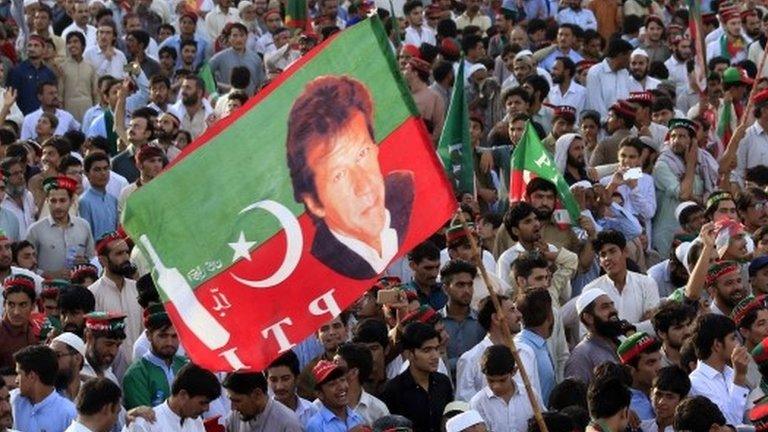
- Published6 July 2018
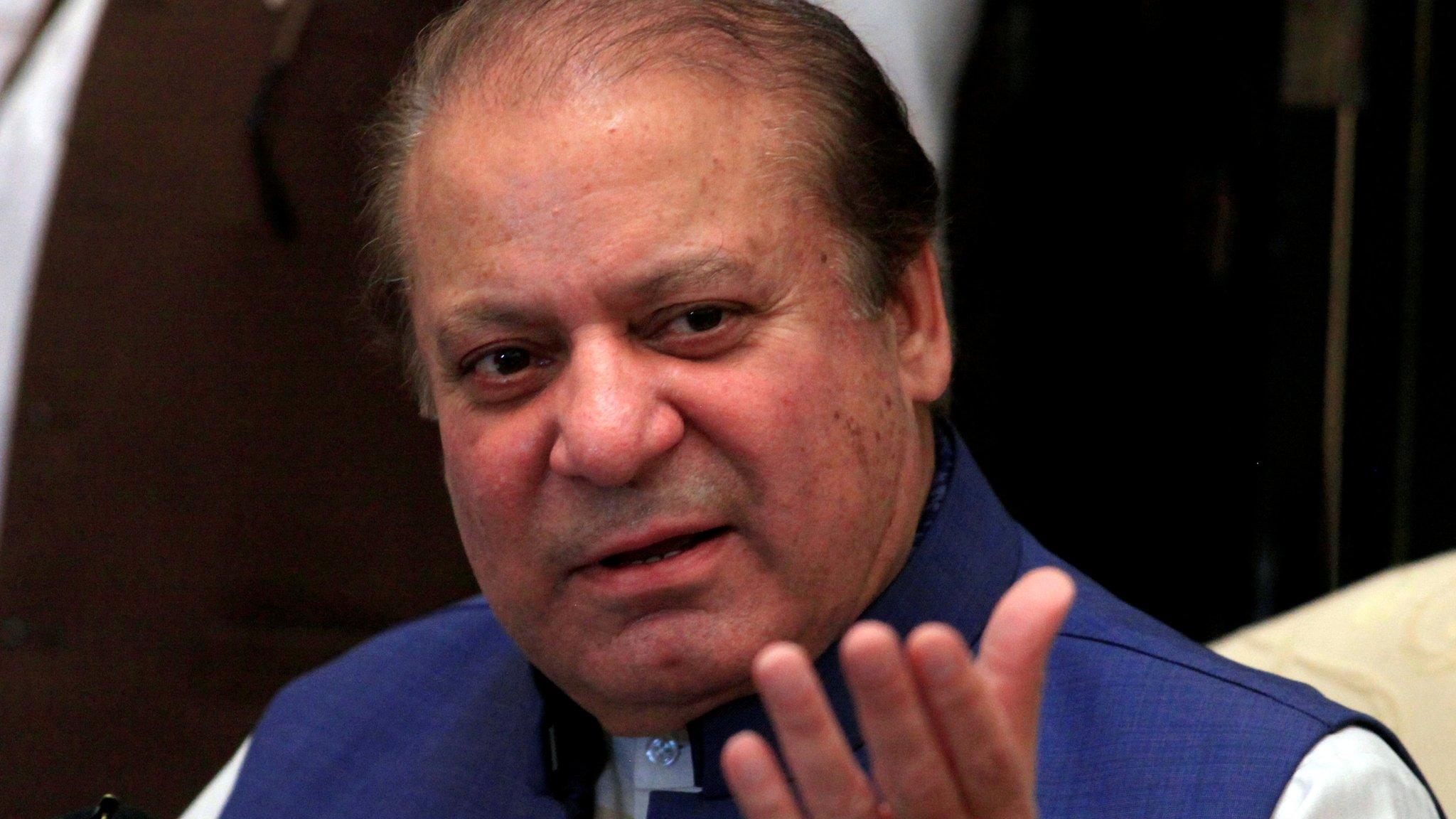
- Published4 June 2018
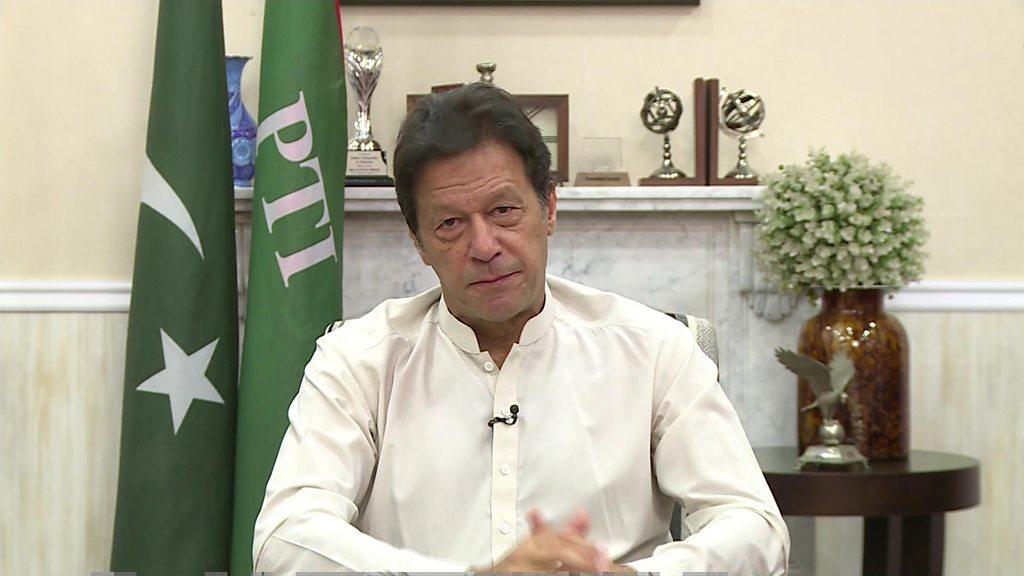
- Published15 March 2024
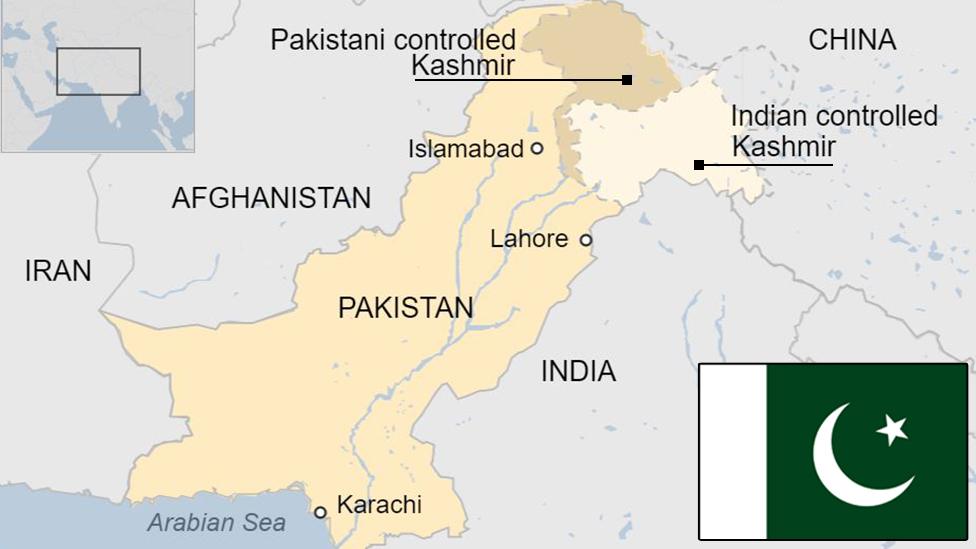
- Published28 May 2018
